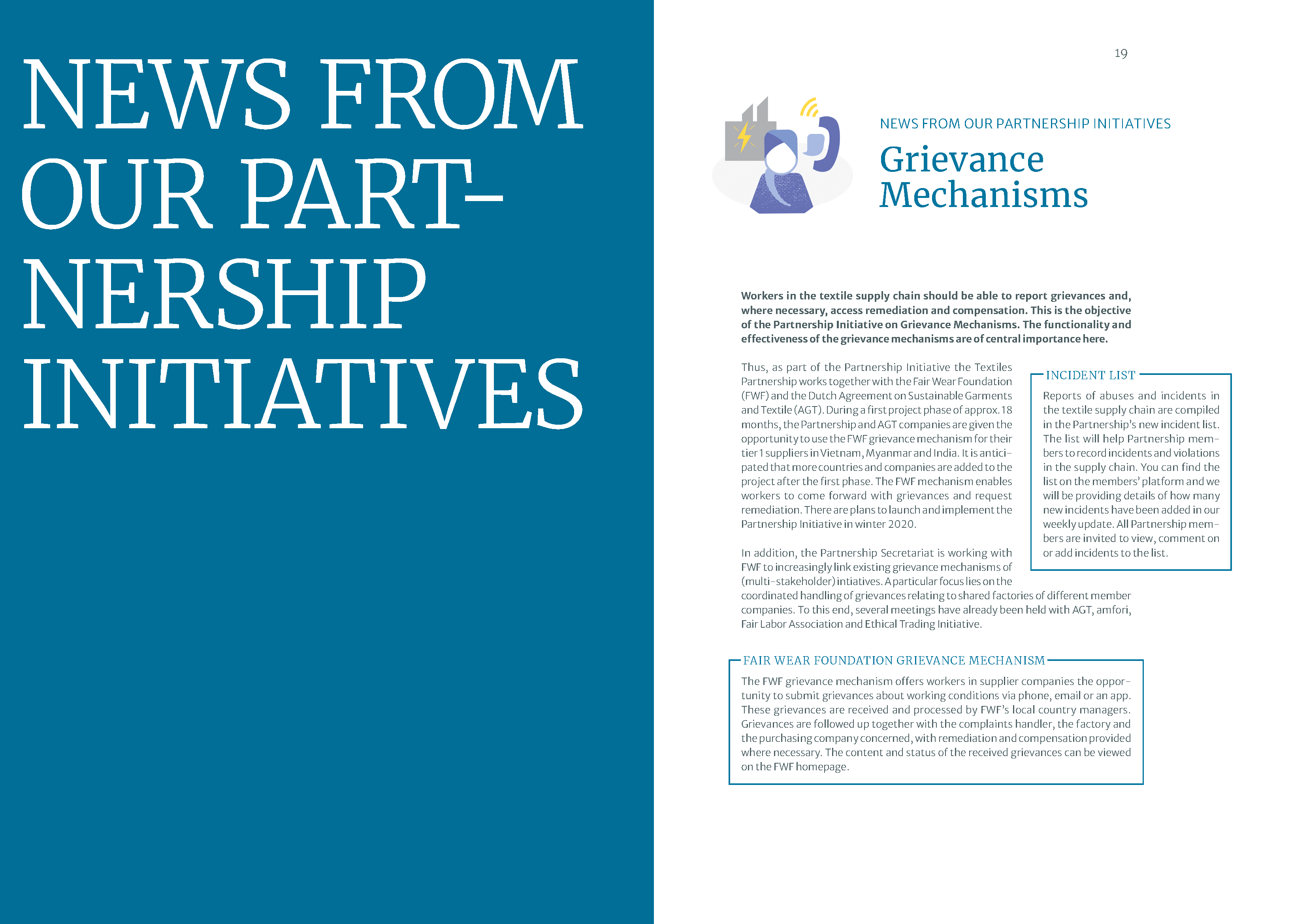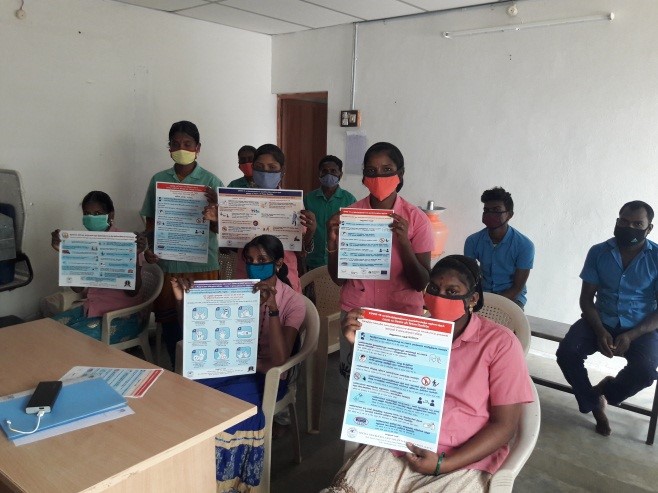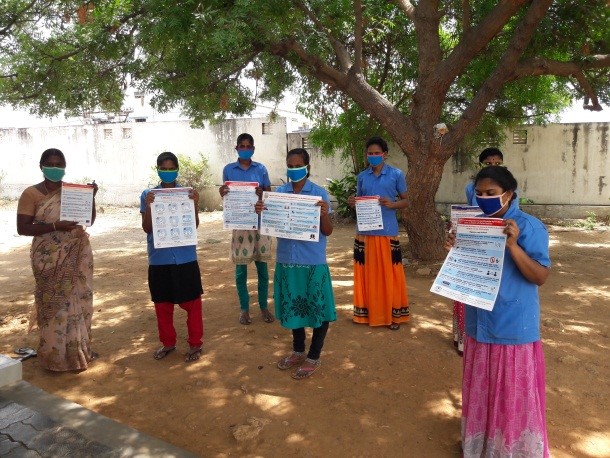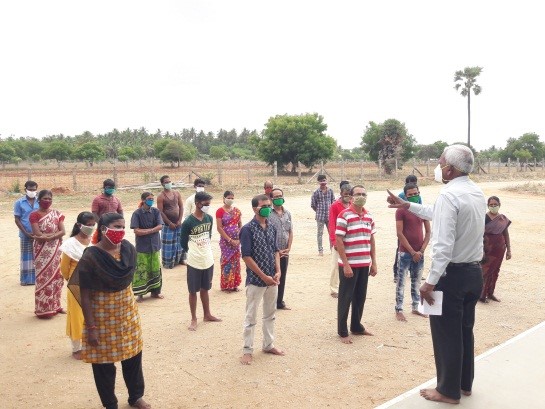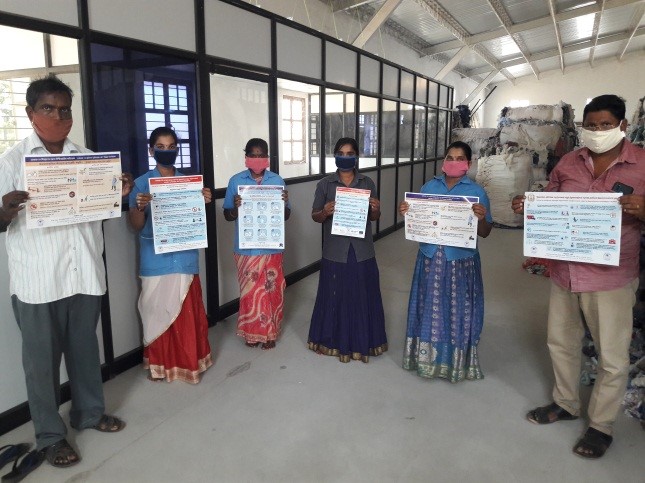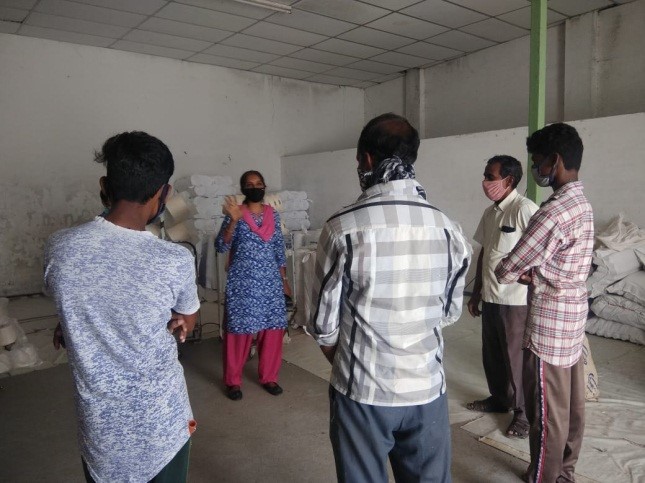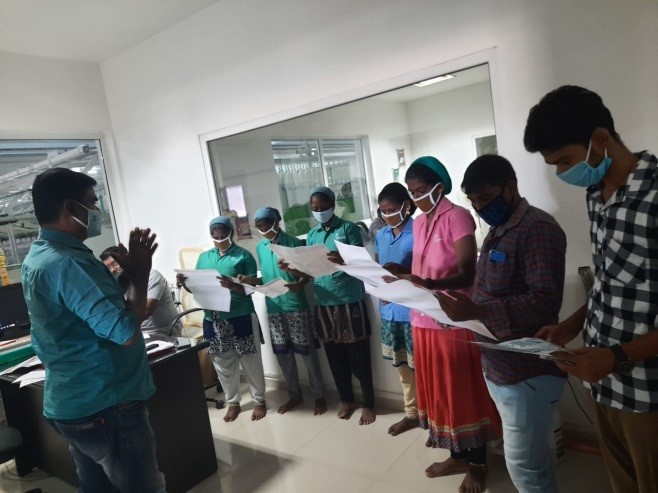Chapter 4.2
Collective Engagement
Partnership Initiatives
The Partnership Initiatives are based on the conviction that we can achieve more by working together. Several Partnership members join forces to achieve improvements collectively in the producing countries, using the companies’ purchasing power, the expertise and contacts of the non-governmental organisations and trade unions, and the German Government’s scope for influence. Suppliers and local stakeholders also play an important role. Four Partnership Initiatives are currently ongoing, and others are planned:
Wastewater
This initiative aims to achieve sustainable wastewater management at textile factories and production sites, using capacity building, the harmonisation of wastewater standards, improved data and analytical quality, exchanges and knowledge transfer, and other approaches. More Information
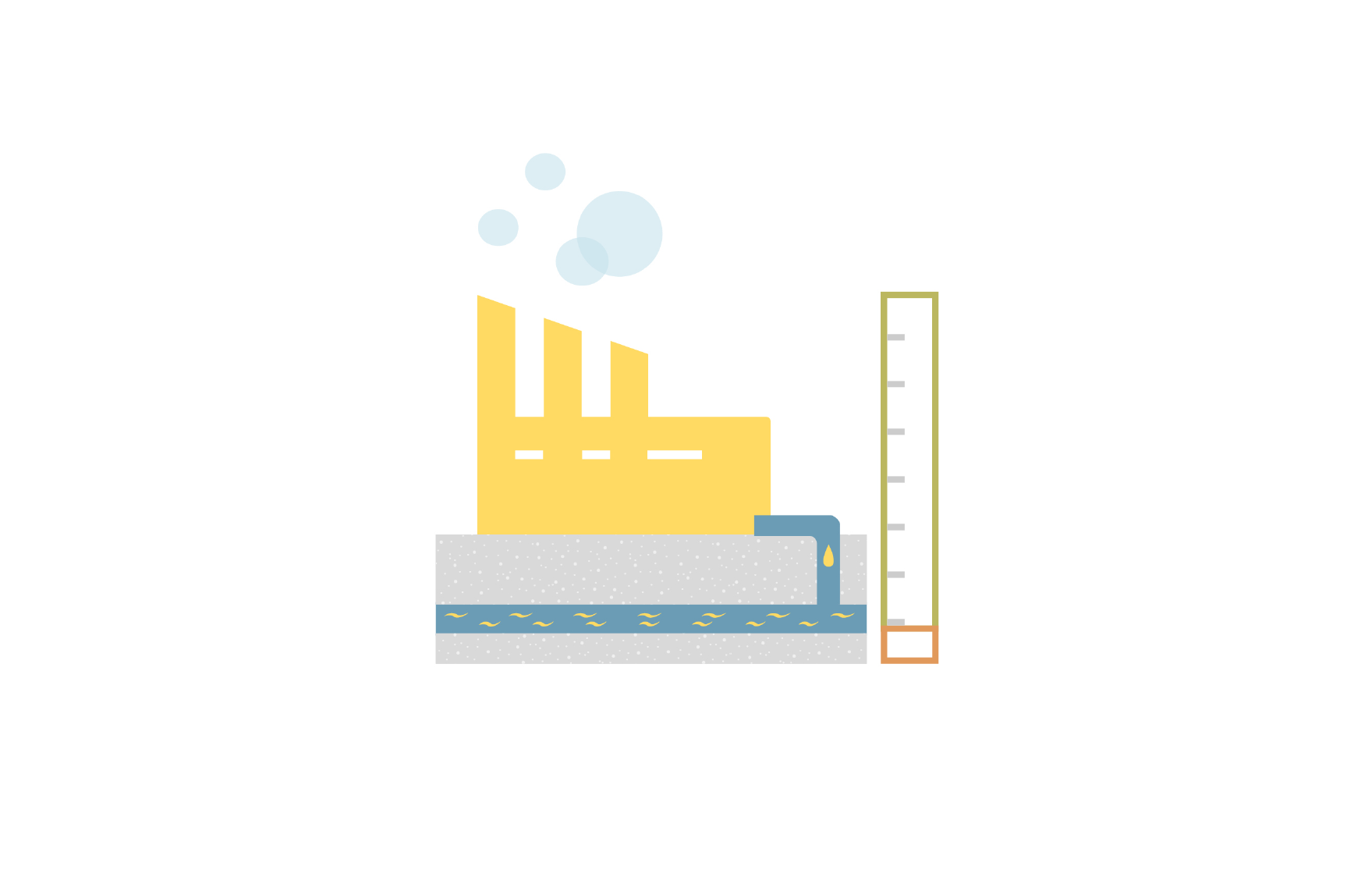
Complaints Mechanisms
Workers in the textile supply chain should also be enabled to lodge complaints. This calls for effective complaints and remediation mechanisms. In this area, the PST cooperates with the Fair Wear Foundation (FWF) and the Dutch Agreement on Sustainable Garments and Textiles (AGT).


Living Wages
Although minimum wages apply in many producing countries, they are often not enough to live on. The Textiles Partnership therefore advocates payment of living wages. Members involved in this initiative devote themselves in particular to installing responsible purchasing practices, freedom of association, and collective bargaining in producing countries. More Information
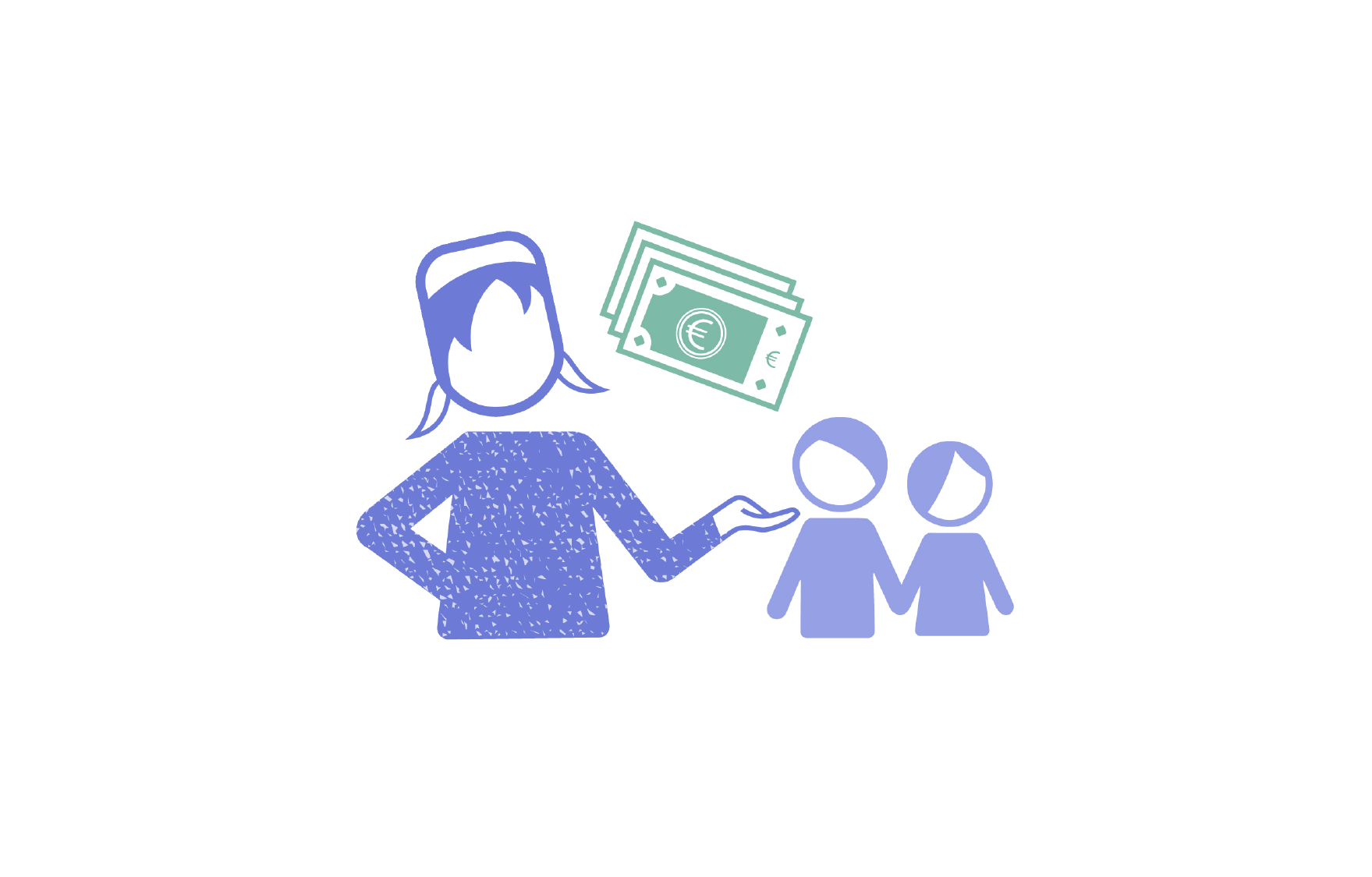

Improving working conditions in Tamil Nadu
The Partnership Initiative Tamil Nadu aims at systematically improving the working conditions within the textile and clothing industry in the Indian state of Tamil Nadu, especially for women and girls working in spinning mills.. To this end, it is working to strengthen the multi-stakeholder dialogue at state and district level, and to deliver training to inform and teach workers and factory managers with regard to their rights. More Information
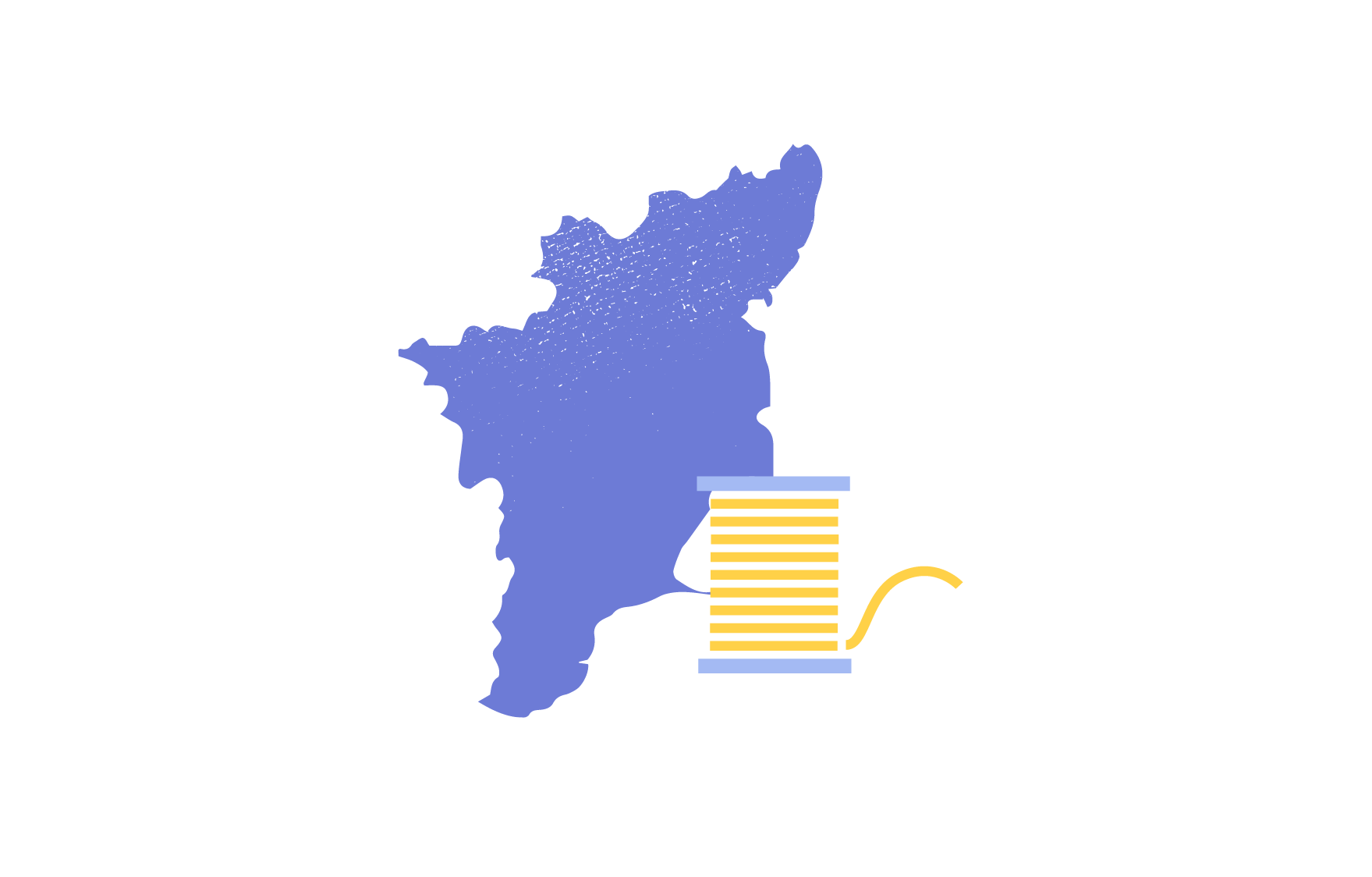
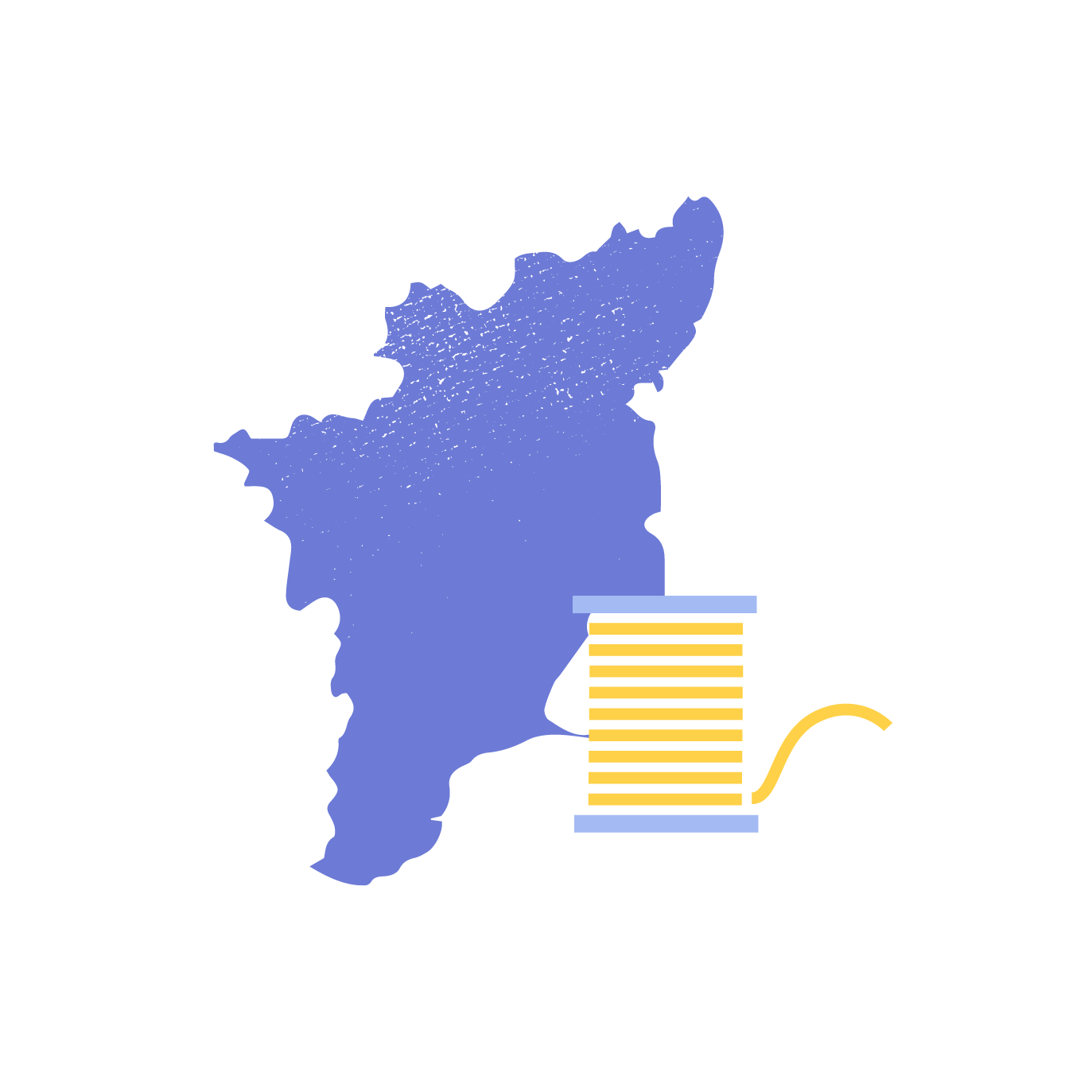
In 2020, 26 members 26 members were engaged in the three Partnership Initiatives Tamil Nadu, Wastewater and Living Wages. Quite a few of them are active in two or even all three initiatives. The Partnership Initiative on complaints mechanisms was still being set up and is about to be launched soon.
Partnership Initiative Tamil Nadu: First Project Phase Completed
Results and Achievements
In 2020, the first project phase of the PI Tamil Nadu (July 2018 to September 2020) ended – with these results and achievements:
NGOs, trade unions, actors from politics and administration as well as companies and associations participate in the stakeholder dialogue. In a total of 38 meetings at district level, 6 meetings at state level and 2 annual conferences, they built trust with each other and started working together. In all four districts – Tirupur, Coimbatore, Erode and Dindigul – steering committees were formed, which have developed action plans and are now implementing them. The action plans address issues such as working conditions in factory hostels, harassment at the workplace, social protection and labour laws. In addition to the four district committees, another steering committee was formed at the state level.
These are the achievements of the training module:
Starting the second project phase with more trust and commitment
The members of the PI agree: Based on the successes and lessons learnt, they want to continue their joint activities. That is why they are currently preparing the next phase. In particular, the structures created and the trust between the stakeholders are to be consolidated and further developed.
The Partnership Initiative in Tamil Nadu reacts to the COVID-19 pandemic
Due to the COVID 19 pandemic, some of the factory trainings could not take place as planned. Therefore, the members of the PI decided to reallocate some of the funds so that the local implementation organisation SAVE could contribute to hygiene and infection control in the production facilities. Among other things, it distributed government guidelines on handling COVID-19 in about 580 spinning mills and factories. In addition, she sought dialogue with political representatives in the four districts in order to respond to the increasing number of reported cases of child labour.
News
Statements from Tamil Nadu
At the 2nd Annual Conference of the MSI-TN, we interviewed some attendees. We asked them how they assess the work of the MSI-TN, how they work with the MSI-TN and what their wishes for the future are.
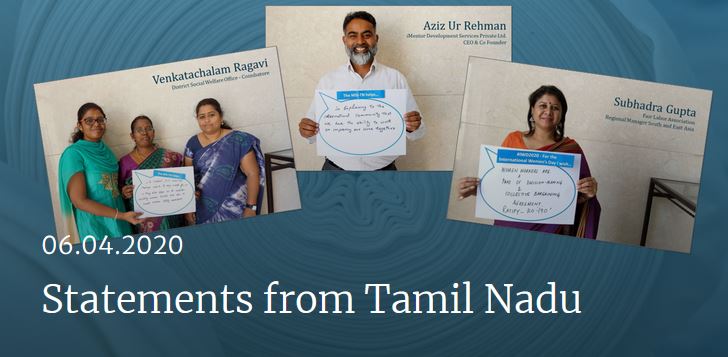

News
2nd annual conference of MSI-TN
The MSI-TN is making progress. This became visible at the Second International Annual Conference. About 140 participants attended the conference on 6th February 2020 in Coimbatore, which was supported by the Partnership Initiative Tamil Nadu.
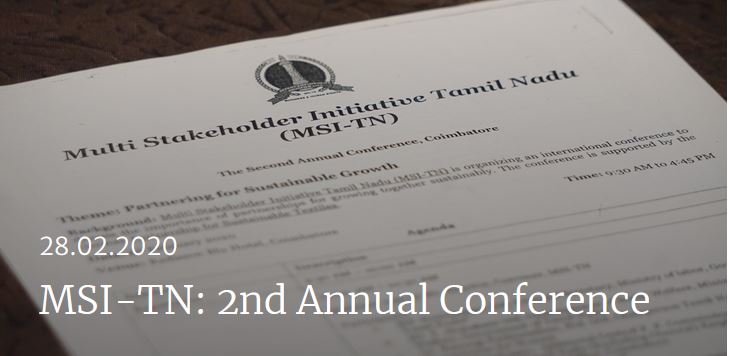

Partnership Initiative Living Wages
In the second module of the PI, the Fair Wear Foundation, the Dutch Agreement on Sustainable Garments and Textile (AGT) and the PST jointly offer supplier trainings. The aim of the trainings is to inform suppliers about basic social standards. They also learn tools and methods to help them raise wages for workers. Due to the COVID-19 pandemic, the supplier trainings could not take place as originally planned. However, two online trainings took place in September and November 2020, which were also attended by suppliers from PST companies. Further trainings are planned for autumn 2021.
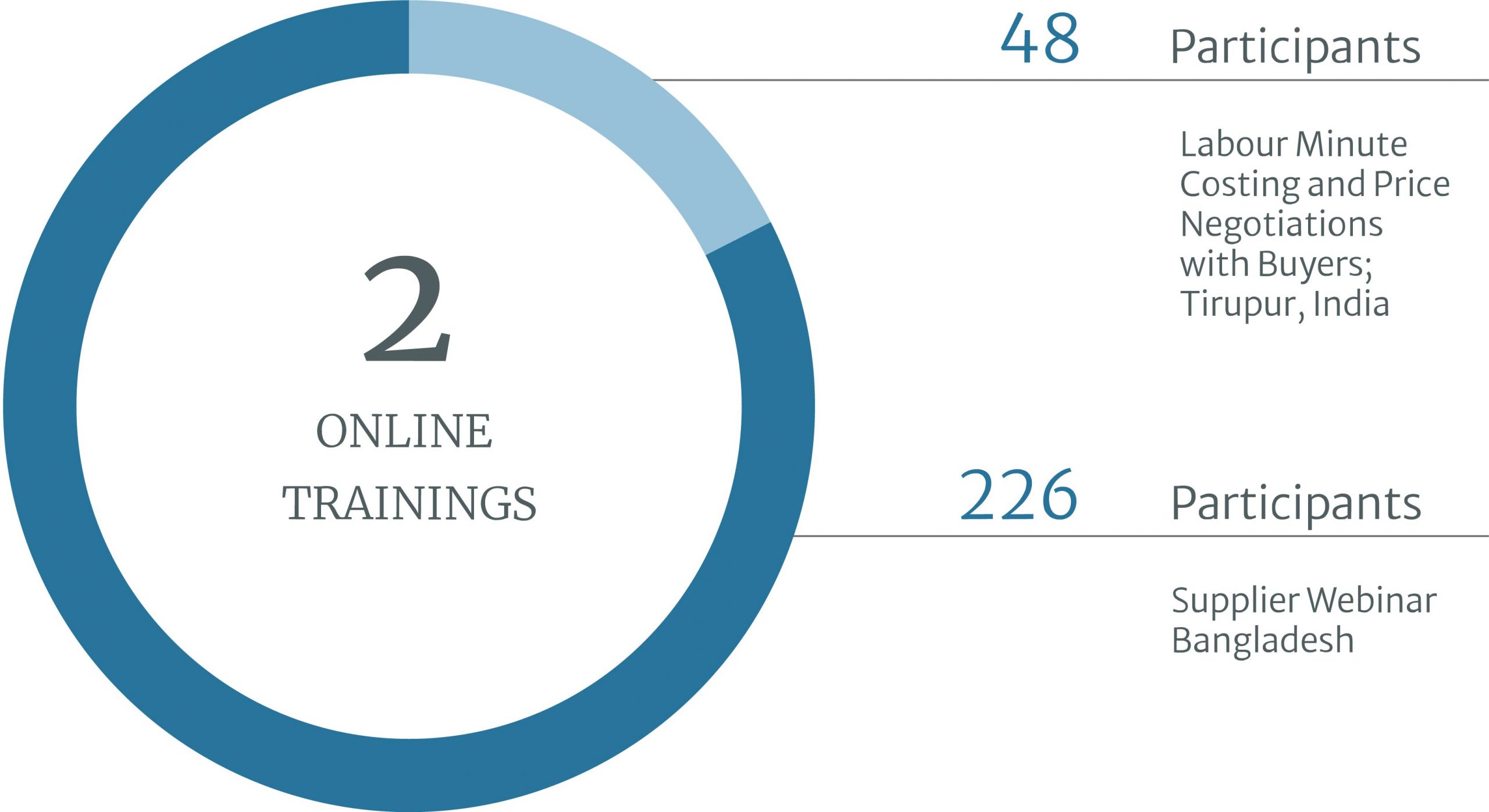
Partnership Initiative Wastewater
At the beginning of the joint work of the Partnership Initiative Wastewater, existing approaches to wastewater management and wastewater reports were compared and an internal collection of challenges and shortcomings was compiled. After this review, the members of the PI agreed on the development and addition of specific support tools for brands and manufacturers.
Currently, the guide on the elimination of hazardous chemicals is being completed and a booklet on wastewater management as well as a plausibility check of wastewater reports are being developed. After completion of the support tools, the focus will be on their application on site. To this end, e-learning sessions are planned in cooperation with partners.
News
Start of the Partnership Initiative Wastewater
Sustainable wastewater management in the textile supply chain is the goal of the new Partnership Initiative. The focus countries are Taiwan, Bangladesh, Vietnam, China, Pakistan and Turkey.
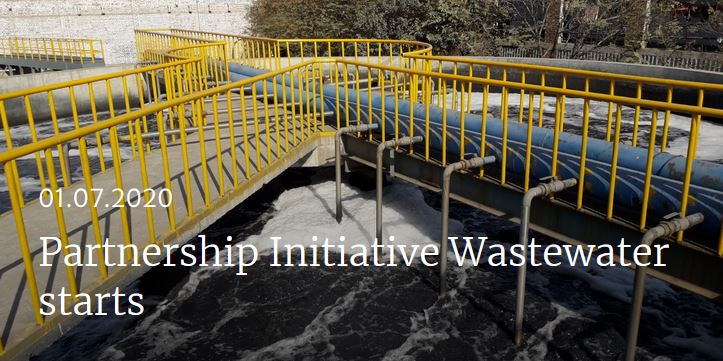

More Information on the Partnership Initiatives
Details on the Partnership Initiatives can be found on the website. What happened in the Partnership Initiatives in 2020, what activities took place and what progress was made, you can read in the report on the 2020 Members´ Meeting.
Report on the 2020 Members’ Meeting
News from our Partnership Initiatives
Read the report on the 2020 Members’ Meeting to learn about developments in the Partnership Initiatives in 2020, what activities were carried out and how successful they were.
